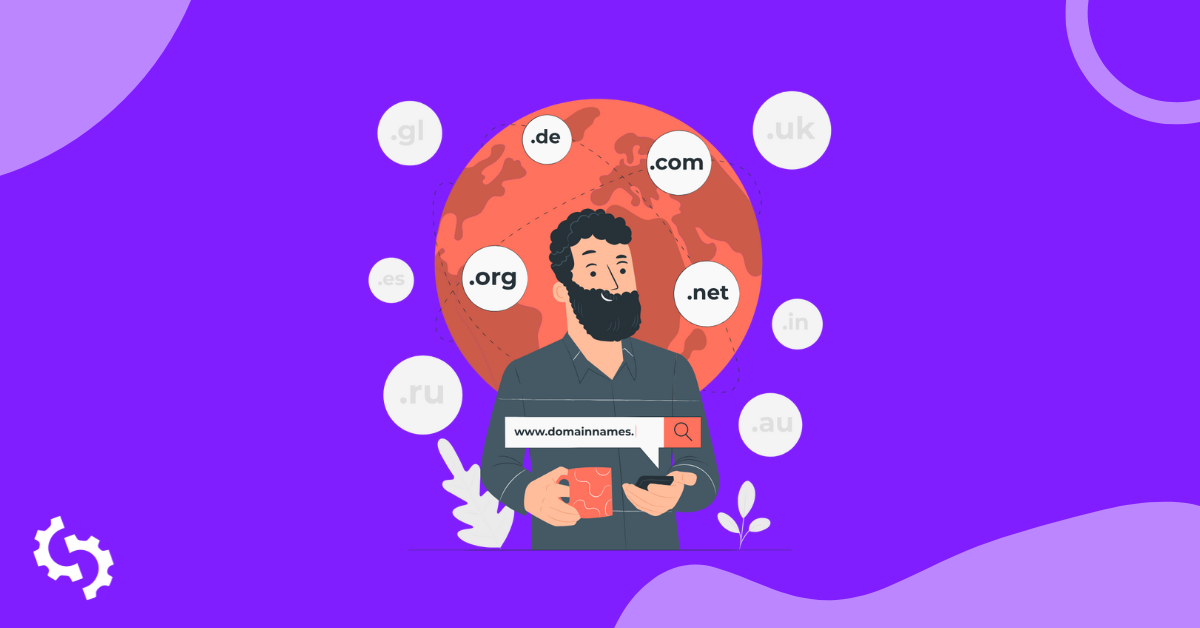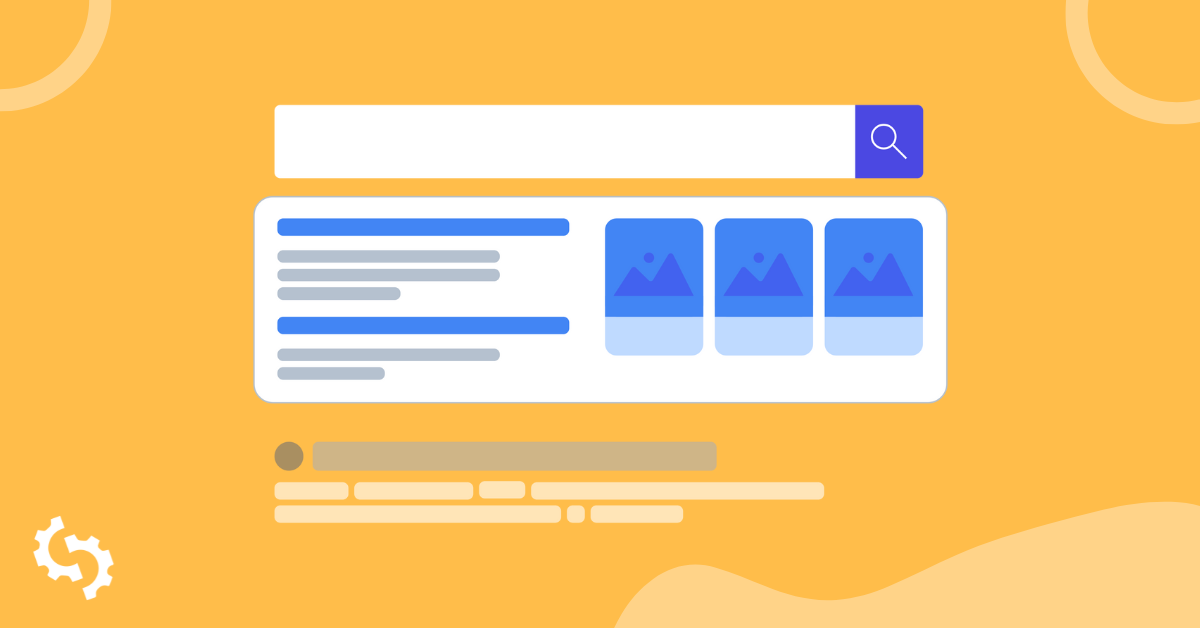
Does Domain Localization Help My SEO?
Over the last few years, we have seen the rise of local SEO. Here are local SEO stats by Social Media Today to summarize it all:
- 46% of searches on Google are local
- 97% of users search online in order to find a local business
- 86% of users rely on the internet to find a local business, and 23% of these users conduct a search at least once weekly
- 30% of searches on mobile are location-related
These stats are a great starting point in considering whether your business or website could benefit from focusing more on local SEO, and whether to consider the use of localized domains in your SEO strategy.

What is a Localized Domain?
A localized domain is associated with a particular country or region. For example, https://www.coca-cola.co.uk/, https://www.coca-cola-france.fr/, and https://www.coca-cola.com.au/. The same brand, in this case, had absolutely different URLs for different countries. You may also note that the format is different. A localized domain is in essence, what is referred to as a country coded top-level domain (ccTLD).
The content on ccTLDs is usually different as shown by this Adidas example (U.S, UK, FR)
https://www.adidas.com/us

https://www.adidas.co.uk/

https://www.adidas.fr/

Generally content served on localized domain would also localize to a particular countries currencies, dates, time, addresses, units of measurements and phone numbers.
It is also important to differentiate between localized domains and generic domains. A generic domain is not specific to a country, or language. It is also known as a generic top-level domain (gTLD). Examples include .com, .info, or .org.
As we mentioned in the coca-cola example, localized domains can have different formats. They can be strictly ccTLDs as in example.de, gTLDs with subdomains as in de.example.com or gTLDs with subdomains as in example.com/de/. Learn more about the differences in these localized domains from Google.
In this article, however, when we use ‘localized domains’, we will be strictly referring to ccTLDs.
Why Localize Your Domain?
Localizing your domain is a SEO strategy worth exploring. Here is why:
Relevant and Useful Results
Tomek Rudzki did a simple poll on Twitter where he wanted to know whether customers would opt for an ad with a localized domain if a brand did not have a localized domain. He also gave a third option - to scroll further in a bid to find the localized domain. Here is the Tweet:
As you can see from the poll results, most users opted to put in a little extra effort to get the results that they deemed most useful and relevant for them.
This example shows that users actually prefer localized domains and even an ad with the localized version would not suffice.
In addition, Google’s main goal is to serve users with relevant and useful results that meet their search intent. The aim is to make sure that the user gets what they are looking for in the shortest time possible, and without much effort on the user’s end. ccTLDs are a strong signal to tell search engines that your content is targeted to a specific country or region, and is therefore highly relevant.
97% of users search online in order to find a local business. Localized domains are therefore a great way to help Google serve the local results that most of its users are looking for.
Localizing your domain makes it easier for Google to more intuitively serve the user the results that meet the search intent.
Higher Rank in Local Results

According to Google’s ranking factors, ccTLDs will rank high in the search results within that country. This translates to higher click through rates. It is important to note that this solely will not make your localized domain rank. You need to have highly relevant and useful content too. Otherwise, your site will have high bounce rates and that’s a bad signal for Google.
Precise Google Local Search Ads
With your domains localized, you are able to run precise local search ads that direct users to the specific location that they are looking for. Read more about how to set up local search ads on Google.
This way, you are able to increase store visits in the various locations, customers get to contact the correct locations, and get accurate information about each location, for example, business hours, or offers on items that may be specific to each location.
Increased Visibility and Trust in Local Searches
A user is likely to trust a source or site that is in his or her location when compared to one that is international. An example would be a user who wants to buy spices to make a traditional dish in their country. The user is likely to trust the results from their country, rather than from a country who may not understand the delicacy.
Reach Larger Local Audiences
Domain localization helps you reach larger local audiences. People who may not understand your company’s primary language are able to access your brand in a language that they understand. This also results in increased conversions and revenues.
Why Localized Domains are Not Always the Safest Bet
While localizing domains can help you tap into traffic across different parts of the world, and even gain new customers and revenue, there are some downsides to consider:
Change in Site Architecture

Often websites are designed to only present from one generic domain. If you decide to serve content across several local domains, you would need to consider firstly if your website supports this, or if you’re willing to duplicate your website and maintain multiple versions for each country. This can add significant effort and cost in re-architecting your site, and then possibly maintaining multiple sites into the future.
There are tools such as Wordpress multi-site which can help supporting multiple website versions.
Expense
ccTLDS can be expensive, due to some duplication, extra work, extra infrastructure, etc. Not only do the individual local domains often cost more than generic domains, you obviously need to pay for multiple. Additionally, the duplication in website infrastructure, and potentially maintaining multiple languages or currencies can significantly increase maintenance costs.
Despite this, localized domains are still preferred among SEO experts, and Google’s Webmaster Help Center recommends the use of different URLs for each version of your pages if you have a multiregional site.
Link Authority is Not Passed Across ccTLDs
As we had mentioned, each ccTLD is treated as a separate URL by search engines. This means that link equity is not passed between ccTLDs even if you own them. For example, if you own www.abc.de and www.abc.uk link equity cannot be passed across the German and French versions of your site. You need to build the link authority of each ccTLD separately, and implement complicated strategies to pass link authority across them.
Some ccTLDs have Restrictions
In order to register some ccTLDs, there are restrictions. For example, to register an Australian ccTLD, you need to own an Australian business or company, and provide this business number at registration. This can also significantly increase the cost and effort of managing ccTLDs. See this article for more information on ccTLDs restrictions. Look out for the ‘notes’ section under ccTLDs.
When Should You Localize?

Localization is by no means an easy process, but it can reap huge benefits for your brand. Let’s explore a few factors that should help you know when it is a good time to localize your domain:
When You have a Significant Number of Visitors from a Particular Country or Region
If you currently have a significant amount of visitors on your site you can analyze your current analytics. With Google Analytics (GA), it contains useful information about the locations where your site visitors come from. To access insights about your site visitors:
- Log in to your GA account
- Go to ‘Audiences’
- Then ‘Geo’
- Then ‘location’
Alternatively,
- Log in to your GA account
- Go to ‘Acquisition’
- Then ‘Search Console’
- Then ‘Countries’
You should be able to see the number of users coming from a particular country or region, the number of new users, information about sessions, and even bounce rates. You can then do more market research and establish whether a ccTLD would be necessary.
Learn more about site visits from this article.
When a Significant Number of Your Search Terms are Related to Specific Locations
You can also do an analysis of your search terms from GA. If a significant number of your search terms are related to specific locations, then you may consider localization for that particular region or country.
- Log in to your GA account
- Go to ‘Acquisition’
- Then ‘Search Console’
- Then ‘Landing Pages’
- Click on a particular URL to see the search terms
- Look for search terms that have locations in them
This image shows you the exact place to find your search terms information:

These two points are a great way to start thinking about localization. They are by no means exhaustive. More analysis would definitely need to be done, and market research too.
In Conclusion
Localization is something that you need to consider making part of your business if you have operations in different countries or regions, or see an opportunity to better target users in a particular geography. However, the decision to localize can be expensive and resource-intensive. It, as a result, needs to be backed by proper market research.











